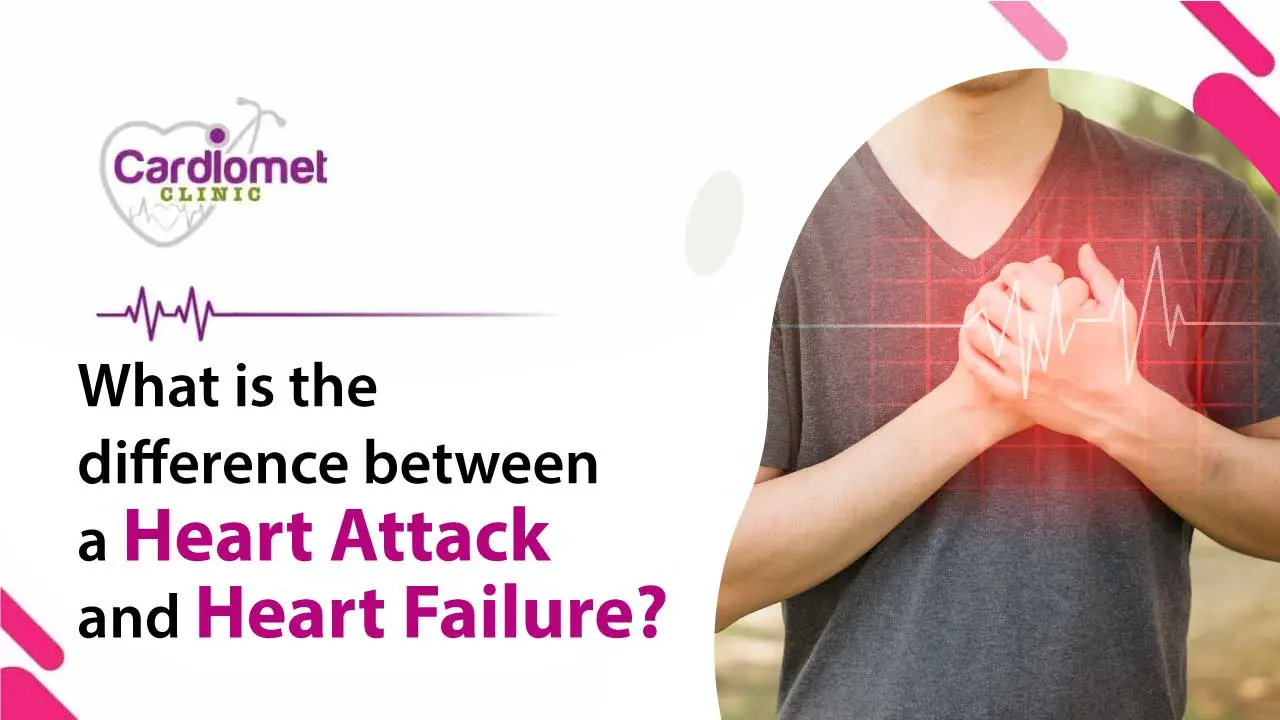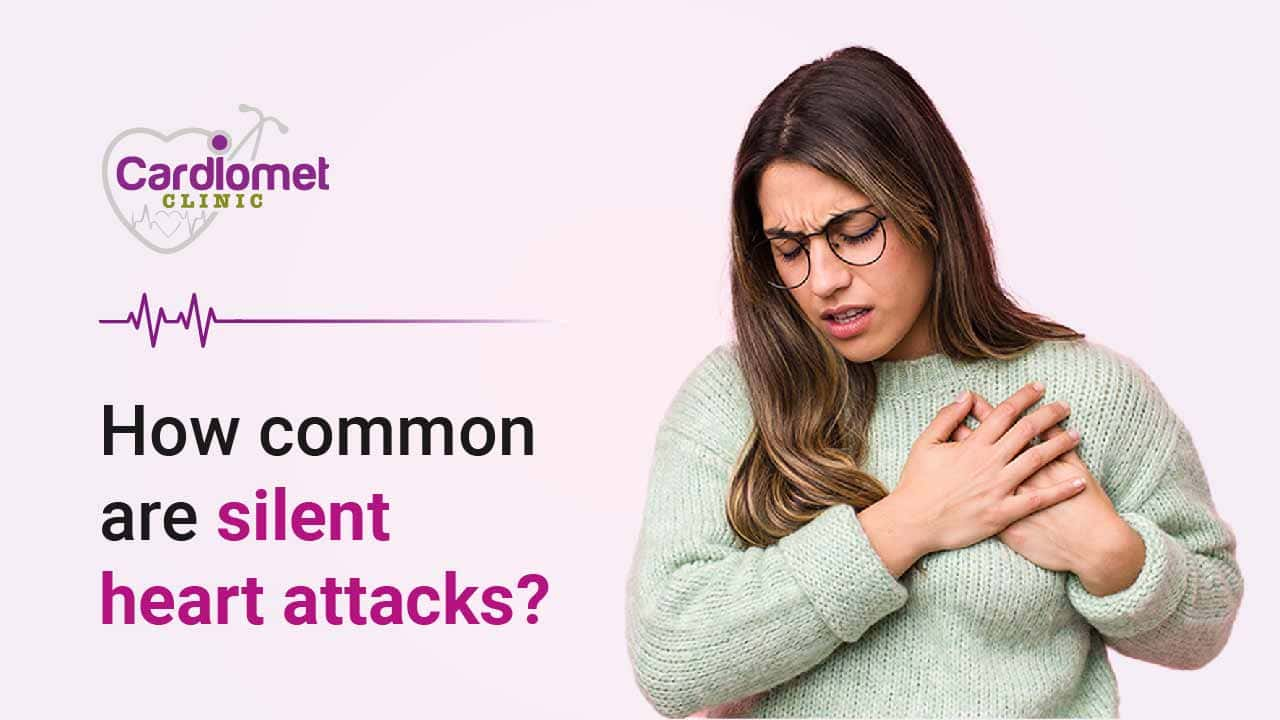Difference between heart attack and heart failure
Even if you know signs of heart attack, it is stil difficult to tell whether you’ve had a heart attack or are experiencing signs of heart failure.
Each condition carries its own set of risks and requires different treatments.
At the time of need, we all need to know what are the best decisions we have to make for our loved ones.
By understanding the key differences between a heart attack and heart failure, we can make those right decisions.
In this blog post, You will know about, the key differences of heart attack & heart failure, how to identiy between two, treatment options, Prevention & some extra information you might need.


-You can Jump On:
Key differences between heart attack & heart failure?
The main difference between these two conditions is the cause and location of the blockage or weakened heart muscles.
A heart attack is caused by a blockage in one of the coronary arteries, while heart failure is due to weakened muscles.
Additionally, heart attack symptoms typically manifest quickly and are more intense than those associated with congestive heart failure.
How to know if you are having a heart attack or heart failure?
The only way to know for sure is to see a doctor.
They can perform tests such as an electrocardiogram (ECG) or echocardiogram to determine the cause of your current health issues and prescribe appropriate treatments.
It’s important to seek medical advice if you think you may have had a heart attack or are experiencing signs of congestive heart failure, even if the symptoms seem mild.
Ultimately,
Understanding the difference between a heart attack and congestive heart failure is essential in order to get the right treatment for your situation.
Related Read : Differences between Heart Attack and Cardiac Arrest
Which is more fatal? heart attack or heart failure?
The severity of a heart attack and heart failure depend on a variety of factors, such as the individual’s overall health.
However, if left untreated, both conditions can be fatal.
It’s important to seek medical attention immediately if you think your symptoms indicate a potential heart attack or congestive heart failure.
Can you recover from heart failure or heart attack?
Yes,
It is possible to recover from both a heart attack and heart failure.
With appropriate medical treatment and lifestyle changes, the outlook for those affected by either condition can be positive.
It’s important to follow your doctor’s advice in order to improve your health and reduce risk factors that could lead to future complications.
From here, we’ll be discussing heart attack & heart failure and their types. Also ways to prevent both & explore treatment options.
Related Read : Heart Attack Symptoms in Men & Women
Heart Attack
A heart attack occurs when one of the coronary arteries that supplies oxygen and nutrients to the heart becomes blocked.
This blockage can be caused by a buildup of fat, cholesterol, or plaque on the artery walls.
When this occurs, it prevents blood flow to parts of your heart, resulting in damage or the death of a portion of your heart muscle.
Also Read : 8 Things To Do To Prevent a Heart Attack
Types of heart attacks
There are two main types of heart attacks: an ST-segment elevation myocardial infarction (STEMI) and a non-ST-segment elevation myocardial infarction (NSTEMI).
A STEMI is more severe than a NSTEMI, as it involves a complete blockage of a coronary artery. In contrast, a NSTEMI involves only partial blockage of the artery.
A STEMI often requires immediate medical attention and can result in significant permanent damage to the heart tissue.
Both types of heart attack can cause symptoms such as chest pain or discomfort, shortness of breath, nausea and vomiting, cold sweats, fatigue, lightheadedness, and sudden weakness or numbness on one side of the body.
It is important to seek medical help immediately if you experience any of these symptoms
Heart Failure
Heart failure is the inability of your heart to adequately pump blood around your body due to weakened cardiac muscles.
Unlike a heart attack, which blocks an artery, there’s no single cause for congestive heart failure; it could be caused by a variety of medical conditions, including high blood pressure, coronary artery disease, and diabetes.
Symptoms include shortness of breath or difficulty breathing; feeling tired; coughing or wheezing; swelling in the ankles, feet, legs, abdomen, or veins in your neck; rapid weight gain due to fluid buildup; and a rapid or irregular heartbeat.
Types of heart failure
There are four main types of heart failure: systolic (left side) heart failure, diastolic (right side) heart failure, valve problems, and arrhythmias.
Systolic heart failure occurs when the left ventricle of the heart fails to contract properly and eject enough blood during each beat. Diastolic heart failure occurs when the left ventricle cannot relax properly and fill with enough blood during each beat.
Valve problems such as aortic valve stenosis or regurgitation can also result in heart failure. Arrhythmias, which are abnormal or irregular heartbeat rhythms, can also cause heart failure.
People with any type of heart failure should follow their doctor’s advice regarding lifestyle changes and medications to manage their condition.
Ways to prevent a heart attack or heart failure?
The best way to prevent a heart attack or congestive heart failure is by taking proactive steps to maintain a healthy lifestyle.
This includes eating a balanced diet, exercising regularly, limiting salt intake, quitting smoking, controlling alcohol consumption, monitoring blood pressure levels and cholesterol levels, managing stress levels, and getting regular checkups from your doctor.
Additionally, it’s important to seek treatment for existing health conditions as soon as possible in order to reduce the risk of complications.
What are the treatments for heart attack & heart failure?
Treatments for a heart attack and congestive heart failure may vary depending on the individual’s health history and medical condition.
Medications such as ACE inhibitors, beta-blockers, diuretics, and antiarrhythmic drugs may be prescribed to reduce symptoms and improve overall heart health.
Other treatments may include lifestyle changes such as dietary modifications, exercise, stress management, and quitting smoking.
In some cases, surgery may be recommended to remove plaque buildup in the arteries or repair damaged valves.
Ultimately, it’s important to follow your doctor’s advice for the best possible outcome.
The bottom line
Understanding the difference between a heart attack and congestive heart failure is essential to receiving proper treatment and reducing your risk of future complications.
If you think you may be having a heart attack or experiencing signs of congestive heart failure, be sure to seek medical attention right away.
Following a doctor’s advice and making lifestyle changes can help reduce symptoms and improve overall heart health.




